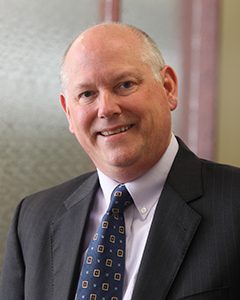That’s Why They Invented (Virtual) Erasers

“Everybody makes mistakes – that’s why the invented erasers,” goes the old saying.
And while the Internal Revenue Service (IRS) may not enjoy an image of being cheerfully understanding of errors, it recently made some significant alterations to its Employee Plans Compliance Resolution System (EPCRS) Correction Program.
The changes provide plan sponsors with the opportunity and ability to self-correct plan errors that could otherwise result in plan disqualification. They include:
- The Self-Correction Program (SCP) is used to correct certain plan operational failures – including failure to follow the plan’s terms and issues with plan documents and participant loans — without contacting the IRS or paying a fee.
- The Voluntary Correction Program (VCP) permits a plan sponsor to — any time before audit — pay a fee and receive IRS approval for correction of plan compliance and qualification failures.
- The Audit Closing Agreement Program (Audit CAP) is used during an IRS examination. It allows a plan sponsor to pay a sanction and correct a plan failure while the plan is under audit.
Further details can be found at the IRS website here.
The agency also outlined new procedures, higher thresholds and more flexibility for plan sponsors and those working to correct plan failures, such as:
- Effective date for changes is July 16, 2021 (some provisions have later effective dates).
- Public comments requested by October 14, 2021.
- Significant changes and revisions which may be beneficial to plan sponsors, participants and the retirement plan community.
Highlights include:
- Overpayment correction options: Expanded correction principles to allow plan sponsors to fix operational failures when plan participants or beneficiaries receive payments from defined benefit plans that exceed what is permitted by the terms of the plan, effective July 16, 2021. The IRS says the new principles reduce the need to seek repayment from participants or beneficiaries who received overpayments, and in some cases, do not require the plan sponsor to reimburse the plan for overpayments to participants.
- Expansion of Self Correction for Significant Operational Failures: Extends the correction period of significant operational failures from two to three years, effective July 16, 2021.
- Expansion of Self Correction for Retroactive Plan Amendments: Makes it easier to use retroactive plan amendments to correct operational failures by removing the requirement that all participants in the plan benefit by the retroactive amendment, effective July 16, 2021.
- Anonymous VCP submissions: Effective January 1, 2022, Rev. Proc. 2021-30 eliminates anonymous submissions under VCP.
- Anonymous Pre-Submission Conferences: Effective January 1, 2022, the IRS will permit plan sponsors or their representatives to make an anonymous written request for a pre-submission conference to discuss a potential VCP submission at no cost to the plan sponsor. Following the pre-submission conference, if the plan sponsor submits a VCP request, it can no longer be anonymous.
- Extension of Automatic Enrollment Failures: Extends the sunset of the safe harbor correction method to correct missed elective deferrals for eligible employees subject to an automatic contribution feature in Section 401(k) or 403(b) plans.
- Increased Threshold for De Minimis Correction Amounts: Increase from $100 to $250 the threshold for certain de minimis amounts for which a plan sponsor is not required to implement correction.
- The IRS says that it is expected that the Treasury Department and the IRS will continue to update the EPCRS revenue procedure, in whole or in part, from time to time, including further improvements to EPCRS based on comments received—and that, accordingly, the Treasury Department and the IRS “continue to invite further comments on how to improve EPCRS.”
All well and good – but this may leave clients wondering if they can ever get to their “regular” work if they have to digest all of this (and other) information.
Fortunately, our fiduciary services help sponsors resolve issues before they become plan problems — and if we do find problems, we deal directly with the IRS and the U.S. Department of Labor (DOL) on the sponsor’s behalf.
As a fiduciary, Pentegra assumes key retirement plan responsibilities for the plan sponsor, helping to reduce legal and administrative burdens, minimize risk, lessen workloads – and, when possible, avoid errors.
Outsourcing responsibility by engaging an independent fiduciary also helps plan sponsors design a more effective plan that is compliant and easy to administer. Providing these and other valuable fiduciary services give plan sponsors more time to run their business.
Oh, and we have plenty of erasers on hand as well. Just in case.
About the Author
